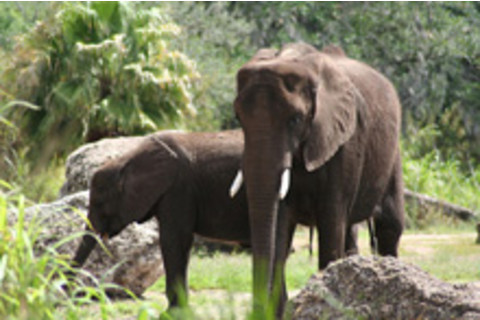
Climatologists predict that the African continent will grow drier and drier as global warming brings more droughts. But whether elephants herds can survive might depend on their oldest members. In a study published in Biology Letters, Charles Foley of the Wildlife Conservation Society studied how three family groups of elephants responded to a severe African drought in 1993. In a nine-month period 16 out of 81 elephant calves in three study groups died, a mortality rate of 20 per cent. The normal mortality rate of calves during non-drought years is only two per cent [Telegraph]. Two groups left the area during the drought, migrating to places with more water, and lost only five calves between them, compared to 11 for the group that stayed. Foley found that the groups that left contained older females than the remaining group, which was perhaps the key to their success: [T]he older females may have been able to draw on memories of an earlier severe drought from 1958 to 1961, and how the elephants survived it [The Press Association]. The third group, meanwhile, lost many of its females during plagues of poaching in the 1970s and 1980s. As such, its leader was only 33, too young to remember the the late 1950s drought. "It is enticing to think that these old females and their memories of previous periods of trauma and survival would have made all the difference," says Foley. "The data seem to support the speculation that the matriarchs with the necessary experience of such events were able to lead their groups to refuge." [New Scientist]. Because the scientists didn't observe the elephants during the 1950s drought, it's impossible to say that the elephant matriarchs led their families to the exact same places that helped the herd survive back then. But Foley says this finding offers hope that elephants' great memories could help them endure in a warming Earth—presuming we don't hunt them to extinction first.
Image: flickr/JeffChristiansen













